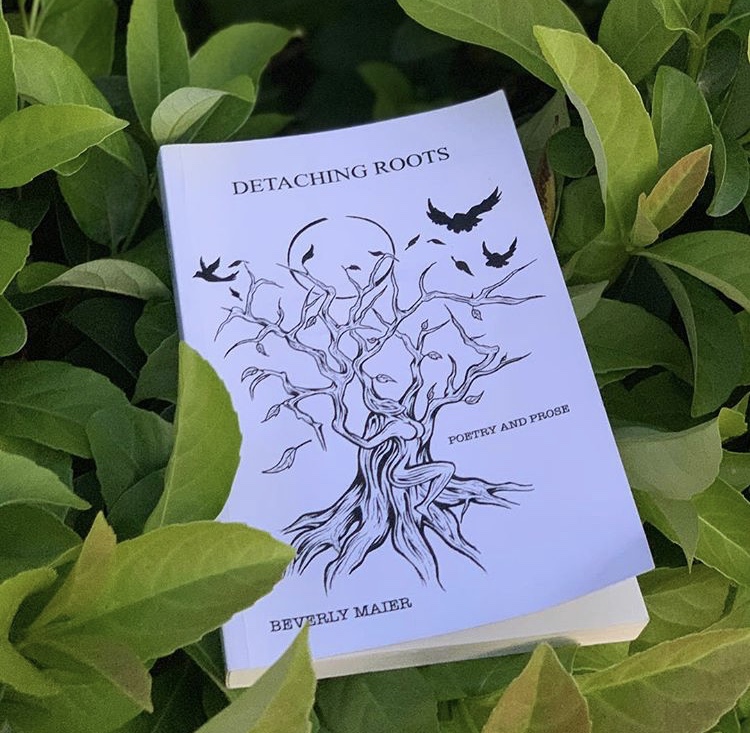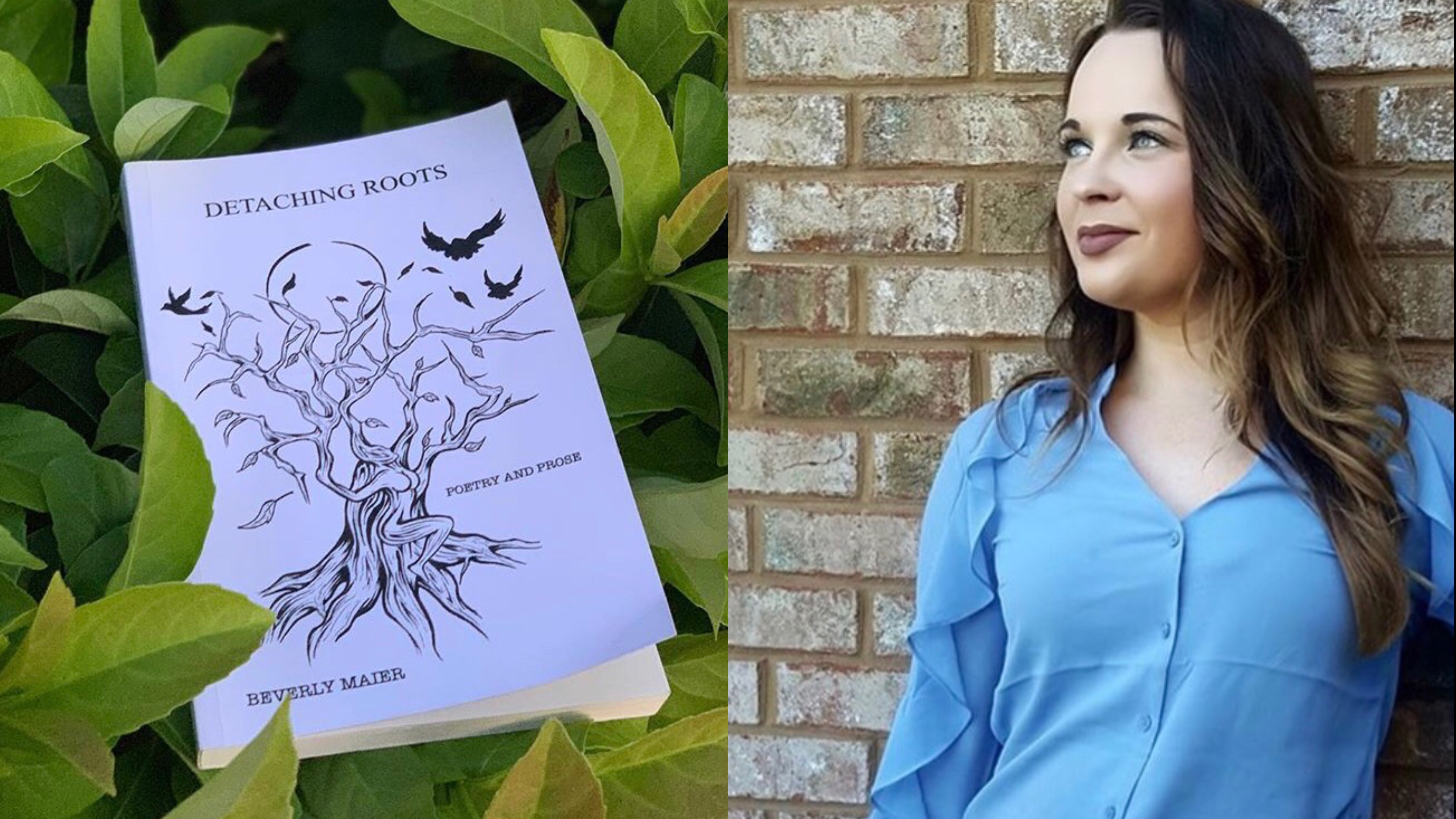Detaching. Hurting. Healing. Falling. Four sections of poems that reach deep down to the root of the cycle of pain and restoration.
Detaching Roots, written by Beverly Maier, is a beautifully penned collection that walks the reader through the cycles of destruction, heartbreak, healing, and love that we often feel as we grow from the traumas and triumphs of our lives.

I love the setup of this book because each section does such a wonderful job of shining light on its subject matter. I wanted to share with you all one favorite poem from each section so you can get an idea of how diverse and raw this book is.
The author bravely addresses the very topics that have caused immense transformation in her life. As the title of the book suggests, sometimes, we have to detach the roots of our lives. Sometimes, we need to completely uproot who we surround ourselves with and who we are in order to let go of what hurts and what hinders us from growing and healing.
In the section “Detaching”, the author addresses a huge source of personal anguish: childhood trauma. In a very candid and vulnerable way, the author shares about some of her most harrowing and heartbreaking experiences and how they shattered her heart and her innocence.
She discusses the long-term effects of her mother’s addictions as well as her father’s absence. She writes with reflective honesty on how that impacted her as a young girl and how that continued to influence her growth into womanhood.
In an excerpt from the poem “You Weren’t There”, the author writes:
“And that’s the sad part about being abused by someone close to you. It’s rare that anyone will believe that it could ever be true.”
The consequences of the traumas she had to experience will break your heart, but I think that the writer is showing such bravery by sharing her story about abuse. I know that her poems will resonate with other survivors in such a profound way.
In the next section titled “Hurting”, the author deals with the pain and anguish that has grown from the soil of her past. It has spiraled into weeds and thorns of heartache. In this section, the author spends time reflecting on the things that have contributed to her heartbreak: mental health, toxic relationships, loss, and the conflicting emotions of trying to work through trauma.
One of my favorites from this section is “The Fool”:
“I’m the fool who will always believe in you, because no one believed in me.”
I think this is such an honest reflection. The reader can relate to the author’s vulnerability in this piece because it is something that many of us have experienced. We do our best to believe in others because we may not have been given that same hope. Oftentimes, this can leave us heartbroken and lost if we put our faith into people who let us down time and time again.
Even through the pain and heartbreak, the author doesn’t give up on herself. She knows that she is worth the healing process, even if it’s a messy one. This is a helpful reminder to the readers as well that they are worthy of the same healing.
As we embark on the “Healing” section of the book, the first poem is a quick favorite of mine as I think it sets the tone perfectly.
Here is an excerpt from “New Skin”:
“I will shed all that was tainted by the uninvited, and replace it with fresh layers that can be loved by me and by someone new. I will no longer be a home for you.”
This poem shouts for hope, empowerment, and new beginnings. It is a beautiful example of shedding the pain of the past and allowing it to transform you into who you’ve always wanted to be. I love the revelation in this poem: “I will no longer be a home for you.” The author is learning to accept herself as worthy of love and as a worthy place for her soul to reside. I think everyone can use that reminder.
The last section, “Falling”, discusses the beautiful potential of life after the storm. It shows the promise of a new beginning, no matter what we had to do to get there. We may have had to detach roots, reinvent ourselves, and let go of what hurts. But there is a beautiful new opportunity to prosper.
This may mean that you finally find self-acceptance. This may mean that you find people that fill your days with happiness. You may even find love. But, no matter what, it means you are here, and you got through the things that were meant to break you.
“We Made It”:
“They stood together in the emptiness of their new home, “welcome home” he said with a smile, “we made it.”
I loved this piece because those three simple words carry a lifetime’s worth of relief for the speaker: we made it. And, the author’s story reminds the readers that they can make it too. This poetry collection was a lovely and honest portrayal of triumph and tragedy. But, above all else, it has a resounding battle cry of hope. “We made it.”
If you haven’t already, you should pick up this poetry collection. It deserves a home on your shelves. I hope you enjoy it as I did.
AMAZON BOOK LINK: “Detaching Roots”
Follow Beverly on Instagram: https://www.instagram.com/b.maier_/



